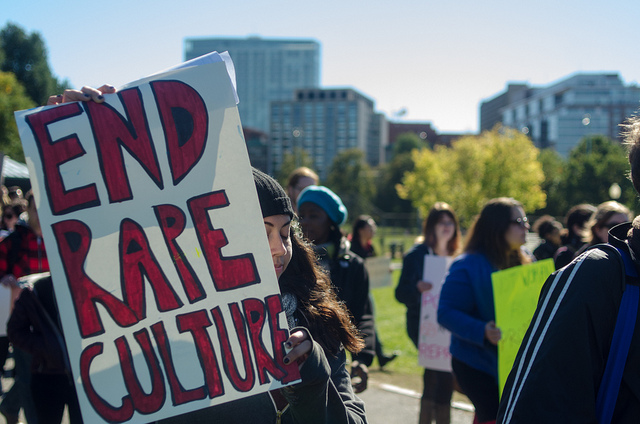I am a survivor of sexual assault.
The healing process has been long and blurry and, at times, felt empty. I have felt truly triggered about two or three times since my assault.
I was once triggered at a Spoken Word event. I figured the speaker would be preaching uplifting poetry and I was open and excited. I sat down as she began to describe, in grave detail, her experience with incest and assault when she was a young girl.
I froze.
I relived my experience through her words. I felt as though I was drowning. I wanted to scream but the room was spinning. I eventually managed to get up. I cried hysterically that night and felt afraid and empty for days.
I was triggered.
“Trigger Warnings” are important in situations where people do not expect to be triggered. An article titled “Rape in the Military” or “My Experience with Domestic Violence” is going to make the reader uncomfortable. If they have personal experience with the topic, it might trigger them. Yet, any reader is capable of deciding whether or not they would like to read these articles. In these situations, a trigger warning is excessive and may dampen the reader’s decision to venture into these essential topics.
I understand why sexual assault is one of the hardest topics to discuss, especially because sexuality is so repressed in our culture. When I first shared my story with my friends, they listened, but felt uncomfortable. Yet, I never felt silenced. I never avoid discussing my story because it may be triggering. Because of this, I feel safe to voice my experience.
Indeed, it is disturbing that young people are stripped of their sexual autonomy. The facts are hard to swallow: in America, one in four women will be raped in her lifetime.
Rape culture is an epidemic, rooted in the misogynistic nature of our society. While rape is not light subject matter or the best conversation starter for a first date, it is vital that we talk about the prevalence.
People do experience triggers; it is undeniable. Yet, triggers and uncomfortable information are different. Discussing hard information may cause someone sadness or anger, but when someone is triggered, they feel entirely brought back to their traumatic experience.
Information can be disturbing, but not triggering.
At my school, students will avoid classes where we unpack the patriarchal roots of our nation because they find this information “triggering.” But these discussions are vital to the eradication of rape culture. Professor of African American Studies, Elwood Watson, explains:
“The fact is that life can be and is often filled with unanticipated and unpredictable situations… trigger warnings are a dangerously reactionary policy that can be perversely manipulated by those with impure agendas or ulterior motives.”
Trigger Warnings grant people a safe excuse not to read about the young girl who was brutally raped this morning or the old woman who will walk home in fear tonight. Survivor’s stories are silenced under a veil of triggering the general public while young children play video games where they rape women for entertainment.
I worked at the Center for Sex and Gender Relations at Skidmore College where survivors have space to disclose their experience. The people who shared their stories held a commonality of feeling isolated after the violation.
While each story was uniquely painful, I could hear their emotional responses overlap. I felt that a community where they could safely share their experiences would be beneficial. It is crucial that all survivors have healing spaces.
However, this community doesn’t exist.
Why? Because it’s triggering. This is problematic because healing paths do not need to conflict with one another. Some survivors could choose to be a part of a space to feel less alone while others may choose to avoid it. Trigger warnings set a negative precedent that trauma should not be talked about—survivors should avoid the possible growth that may arise out of their suffering.
One of my best friends and I became close through a mutual disclosure, where we exchanged tears over our own lost innocence. These conversations are never easy. They are difficult and tainted with broken pieces of shame and internalized blame. Yet they are vital to the healing process.
Triggers are psychologically understood to be situations where the survivor was not expecting to be exposed to their trauma. For instance, the only times I have been triggered were in situations where I did not expect exposure to a detailed depictions of rape. These experiences made me feel that I was not in control. In a way, they mirrored my own experience with assault.
Thus, Trigger Warnings are important in spaces where rape culture is not typically discussed such as parties, open mic nights or bars. Yet, throwing around a “Trigger Warning,” mistaking discomfort for triggering information, not only dampens rape discourse, it dampens the steps towards eradicating rape culture.
Author: Cheyane Reisner
Editor: Emma Ruffin
Photo: Flickr







Read 0 comments and reply